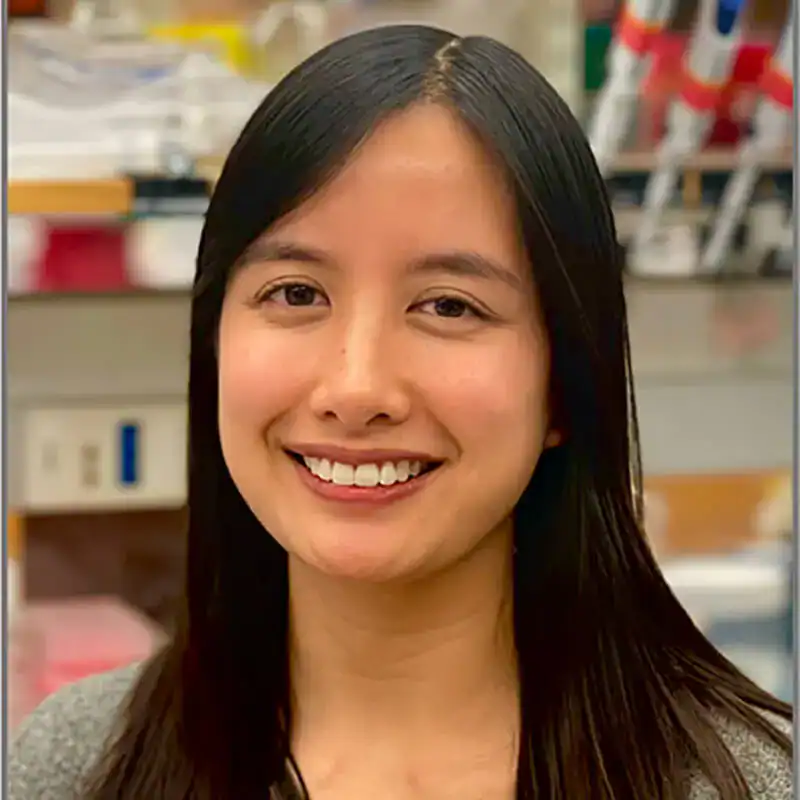Interferons (IFNs) are powerful immune molecules, but their use in cancer treatment remains a double-edged sword. While IFN signaling can powerfully activate immune responses against tumors, sustained IFN activity can paradoxically lead to immune evasion and cancer relapse.
The key to resolving this contradiction may lie in interferon-stimulated genes (ISGs), a set of more than 300 poorly understood genes induced by IFN signaling. Dr. Samantha Fernandez aims to systematically characterize the immune functions of these genes, using an evolution-informed screening strategy coupled with structural biology and biochemical validation. “By taking a novel, evolutionary approach to studying ISG activity, my research will have a transformative impact on a variety of IFN-dependent cancer treatments and will open new opportunities to harness our immune system to combat disease,” she says.
Dr. Fernandez’s path into molecular biology began as an undergraduate student. “I was unconventional in many ways as a community college transfer student at UC Berkeley, a first-generation Filipino immigrant, and the first in my family to pursue any kind of doctoral degree,” she explains. With perseverance and self-motivation, she pursued evolutionary genomics and virology research at UC Berkeley and the Gladstone Institutes in San Francisco, respectively. During her graduate training at UC Berkeley, Dr. Fernandez developed genomics-based methods to study how cells control protein synthesis, and she discovered a new mechanism of translation regulation involving ribosome recycling. As a postdoctoral fellow, Dr. Fernandez’s focus is on decoding the molecular logic of immunity – where structure, function, and evolution intersect.
Sponsor
Philip Kranzusch, PhD
Research Focus
Immune responses, viral pathogenesis, interferon signaling
Projects and Grants
Discovering conserved mechanisms of interferon-dependent cancer immunity using cross-kingdom interactions
